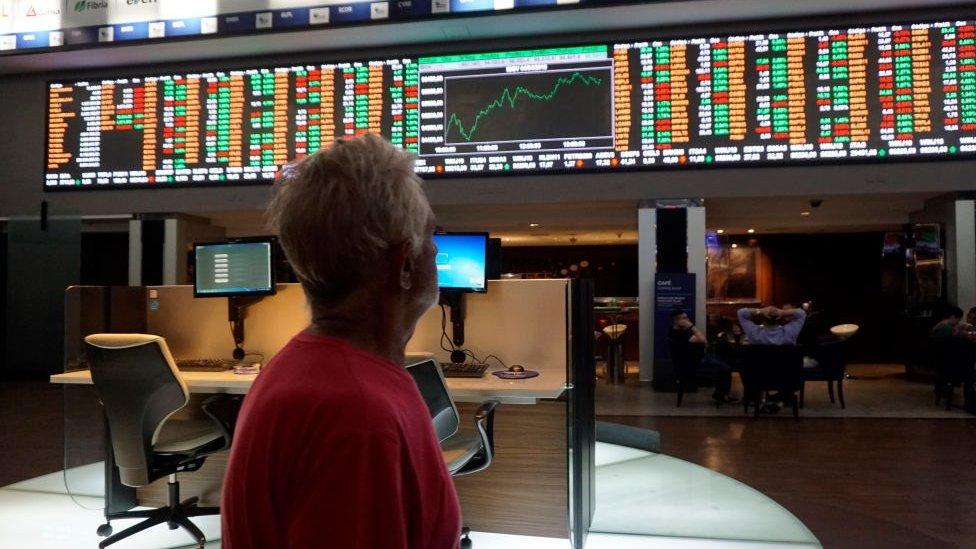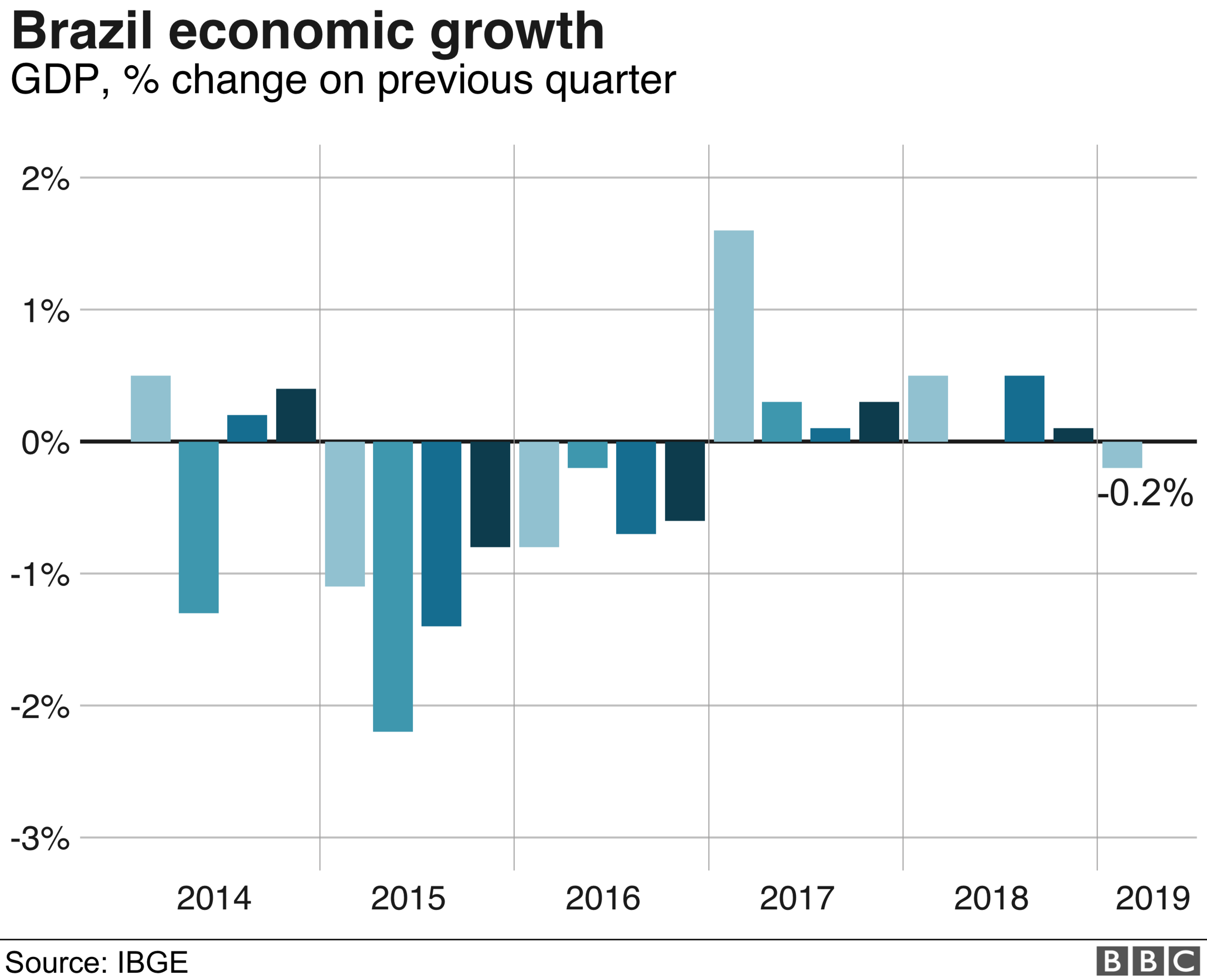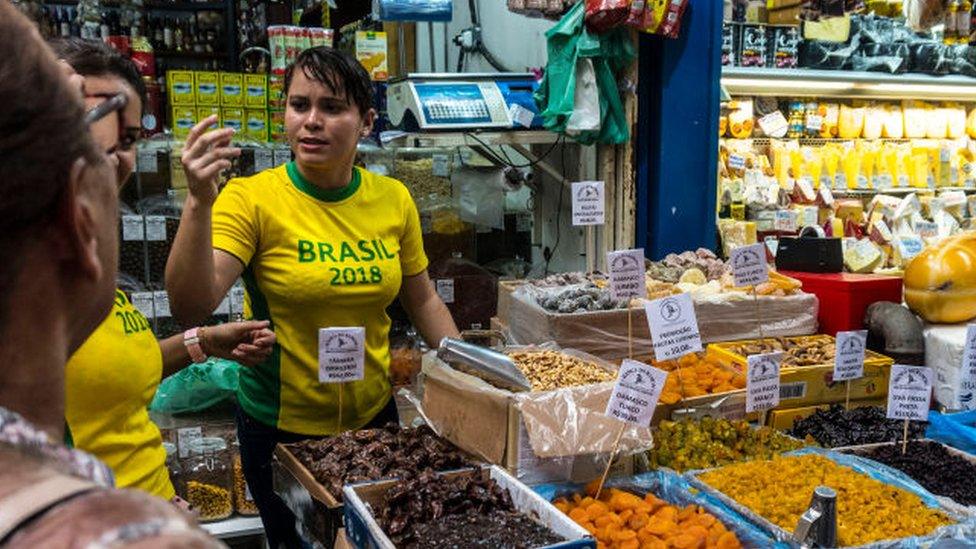Brazil economy contracts for the first time since 2016
- Published

Brazil's economy shrank in the first three months of the year for the first time since 2016, when the country was in recession.
It contracted by 0.2% compared with the last three months of 2018. Compared with a year ago, it grew by 0.5%.
The fall comes at time when Brazil's President, Jair Bolsonaro, is facing scrutiny of his efforts to revive the economy after a two-year recession.
Economists said there was a risk of another recession.
If the economy shrinks again in the second quarter, the country, once regarded as having huge growth potential, will be in recession again.
That would come barely three years after the two-year recession in 2015 and 2016, when the economy shrank by almost 7%.
William Jackson, chief emerging markets economist at Capital Economics, said that while the contraction in the economy was, in part, the result of temporary factors, there were early signs that growth in the second quarter had also been weak.

"There is now a real risk that the economy will slip into a technical recession," Mr Jackson said.
The county was once designated as one of the Brics - which along with Russia, India, China and South Africa could outpace developed economies by 2050.
While the contraction was in line with expectations, it is an early indication of economic performance since Mr Bolsonaro took power in January and appointed businessman Paulo Guedes as "super-minister" of the economy.

Analysis: By Daniel Gallas, South America Business Correspondent
When Jair Bolsonaro was elected, Brazil's stock market and currency both bounced up - showing just how confident markets were in the new government.
Mr Bolsonaro had given carte blanche to his economy minister, businessman Paulo Guedes, to act on reforms.
Almost five months later, there is much disappointment with the government and with the economy.
Mr Guedes has been the target of friendly fire: attacks from other ministers, resistance in Congress from Mr Bolsonaro's own party and even calls for state intervention coming from the president himself.
He has also repeatedly threatened to leave the government if he doesn't get his way with Congress.
Markets now believe Brazil will only start to show any significant growth next year.

In the first three months of the year, there was a drop in investment and a decline in industrial and agricultural output.
There was also a 1.9% slump in exports which was, Mr Jackson said, in part, related to lower metals exports.
"This appears to be due to cuts in iron ore output following the Brumadinho dam tragedy," he said.
Rising risk
Brazil's mining dams: A disaster waiting to happen?
Brazil's worst mining disaster was caused when the embankment tailings dam in Brumadinho broke, leaving hundreds dead.
It is owned by Vale, the world's biggest producer of iron ore.
Mr Jackson expects the cut in iron ore production to have only a one-off impact on Brazil's economy and expects growth in the second quarter.
Even so, he said there was "growing risk" of another contraction because of weakening sentiment in April and May.
Isabela Guarino, chief economist at XP Asset Management in Sao Paulo, also expects growth in the second quarter, but said: "There is a very real risk of contraction, which would take the country into a technical recession.
"It's not our base case, but it's a rising risk."
- Published27 May 2019

- Published11 April 2019
